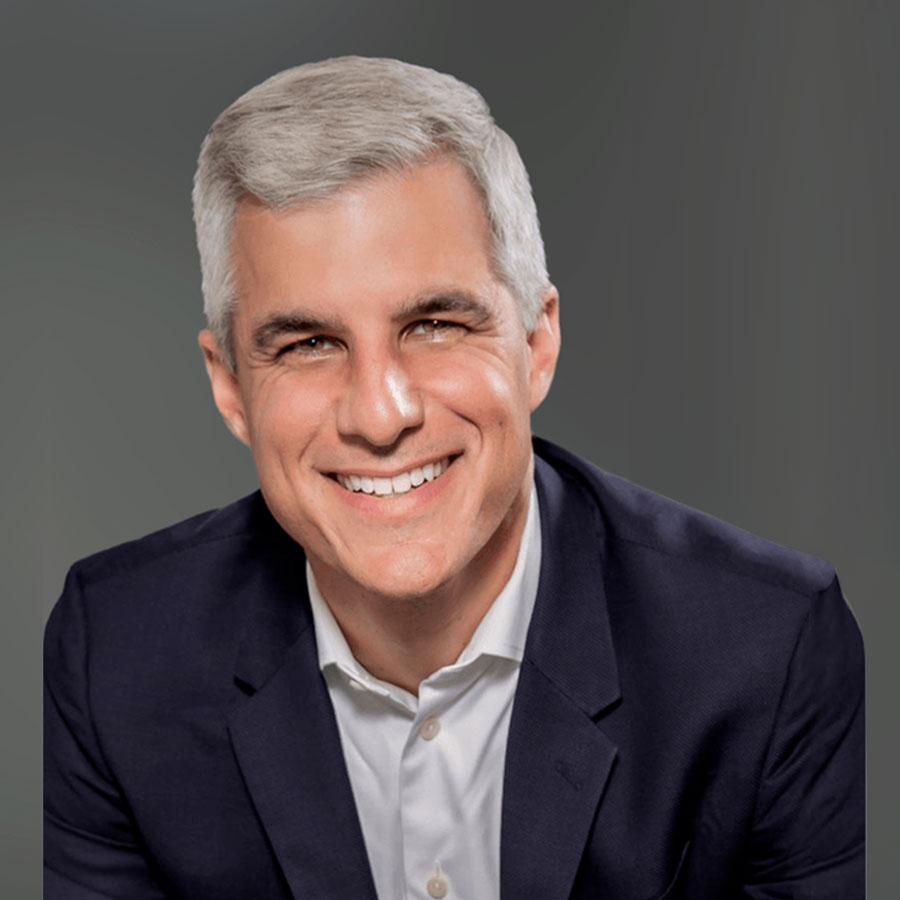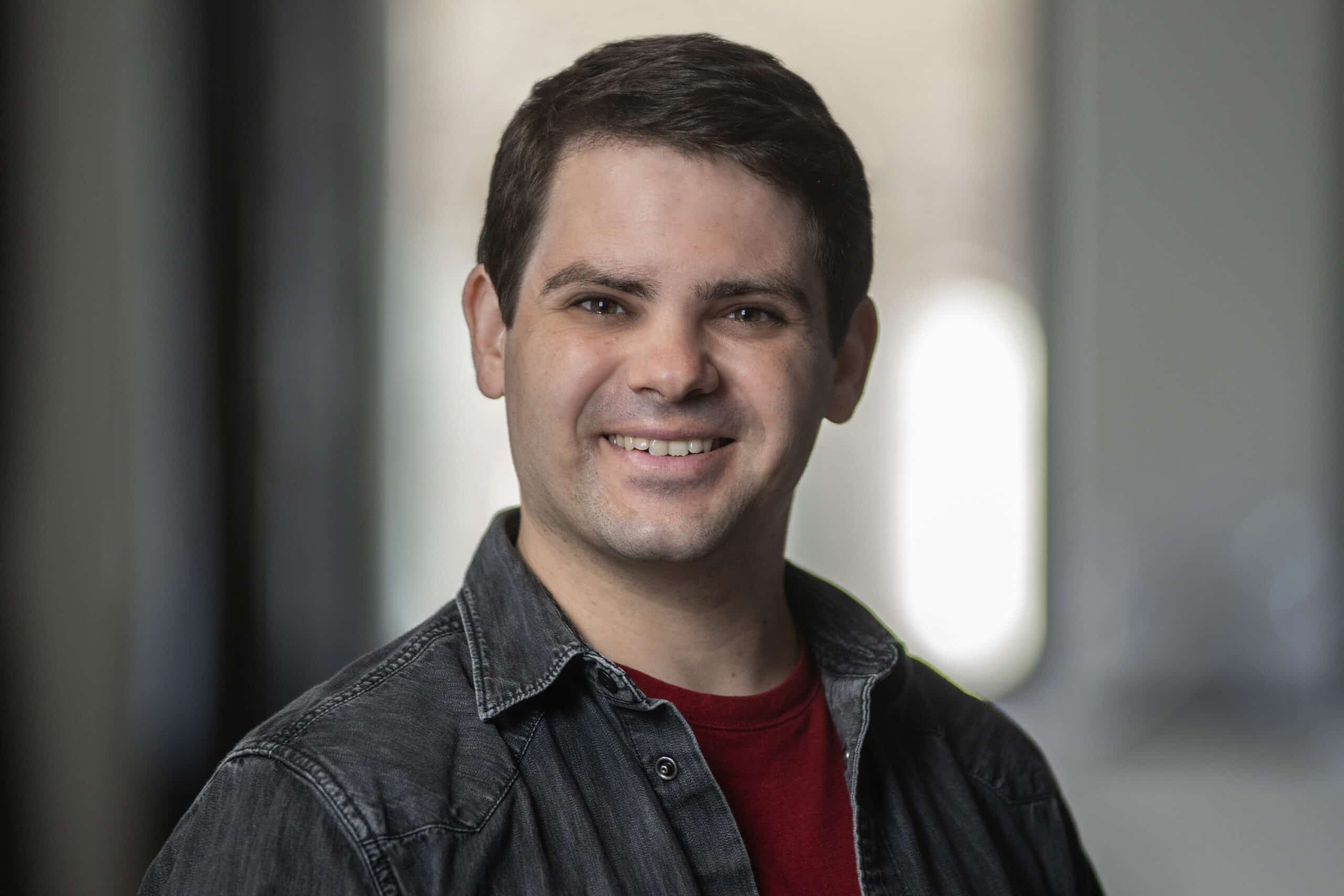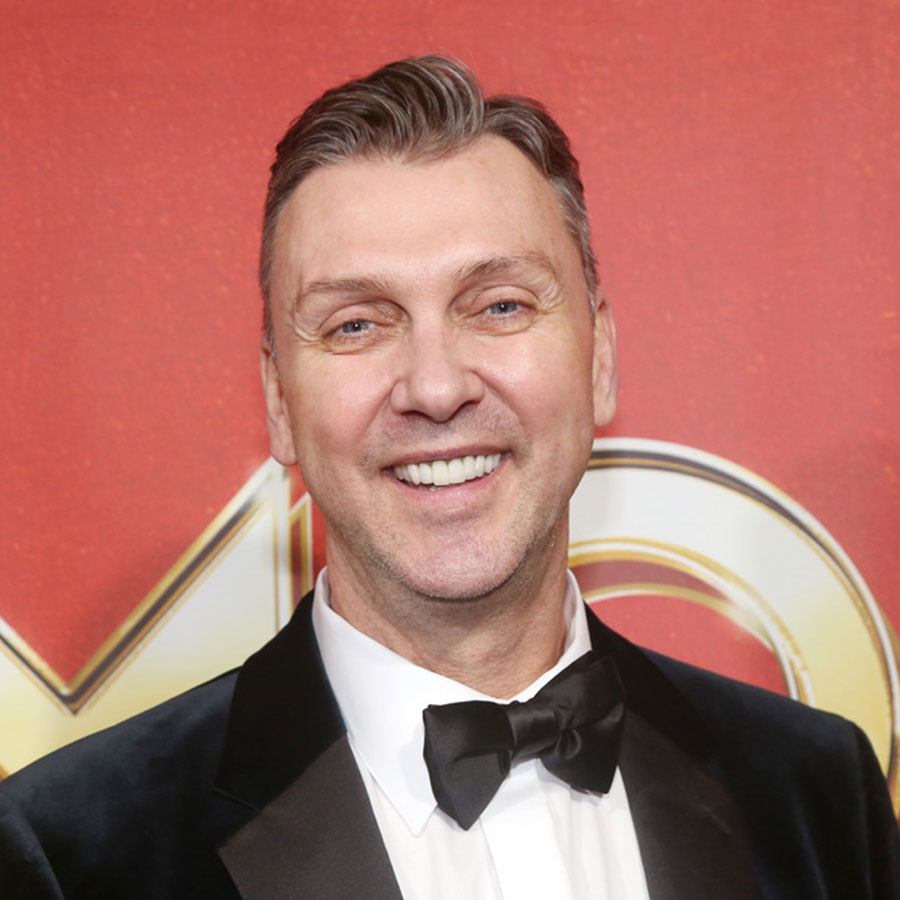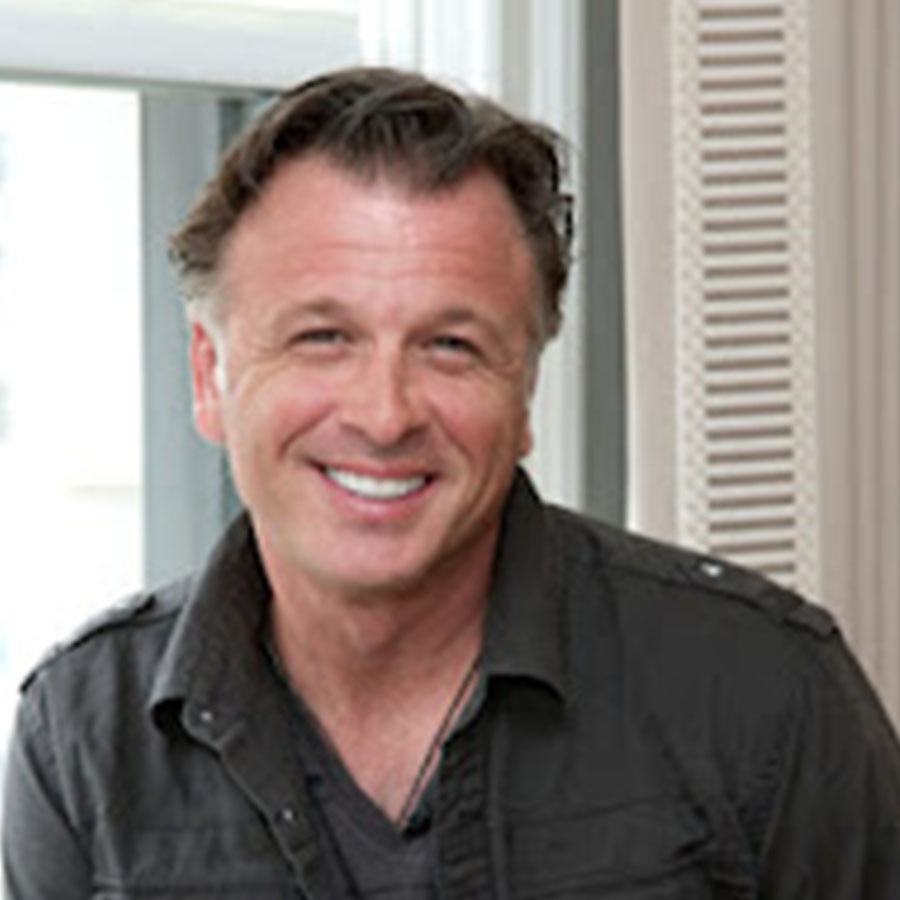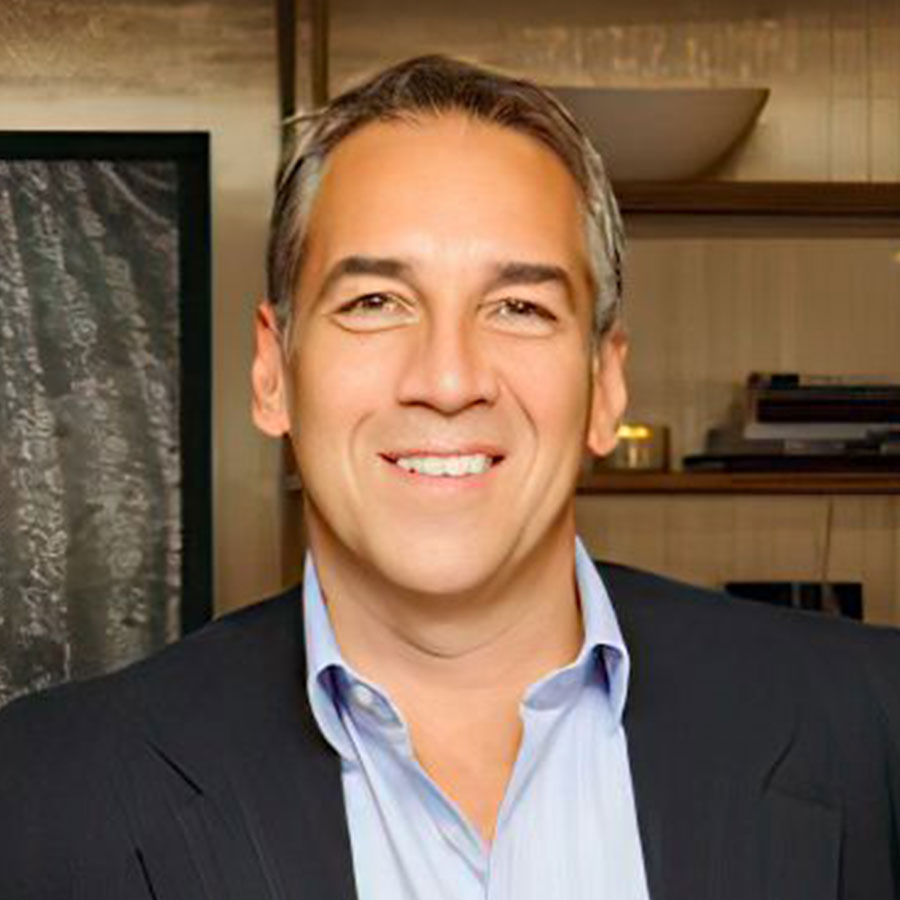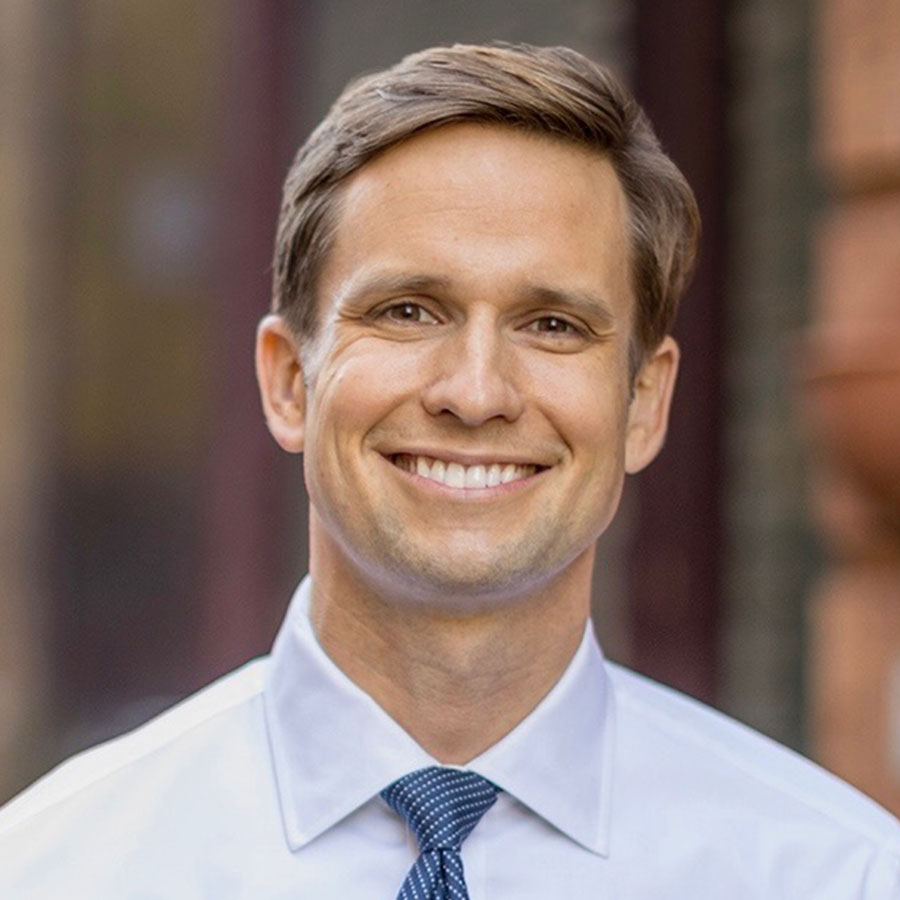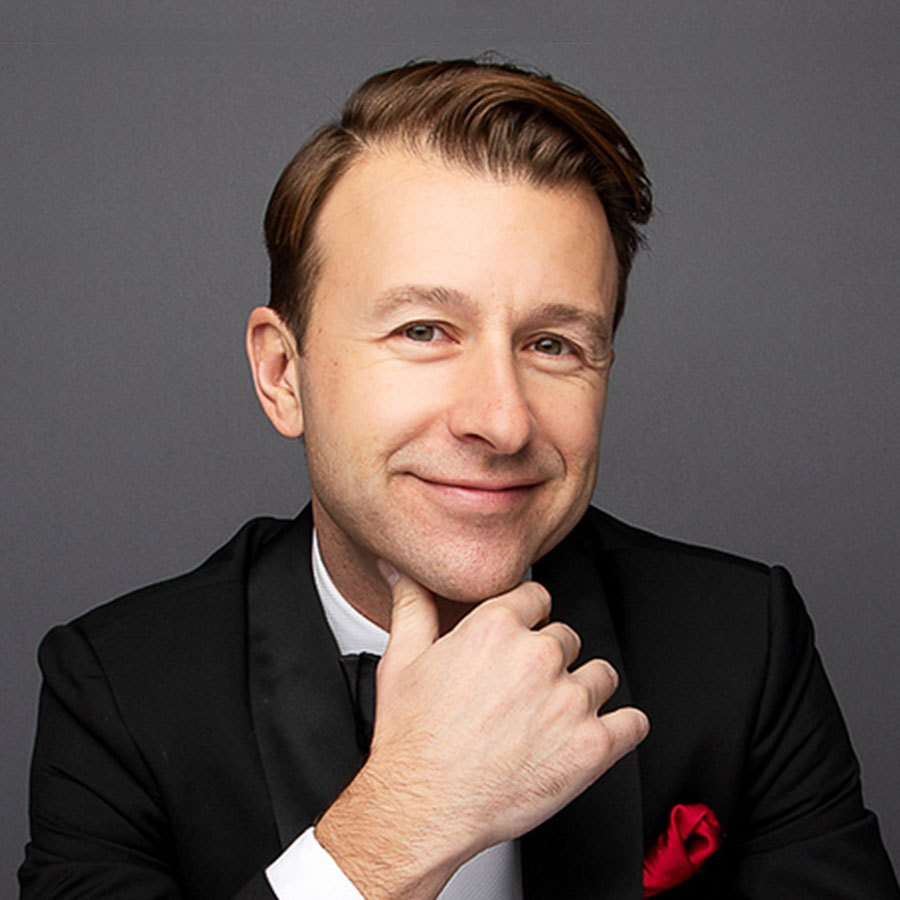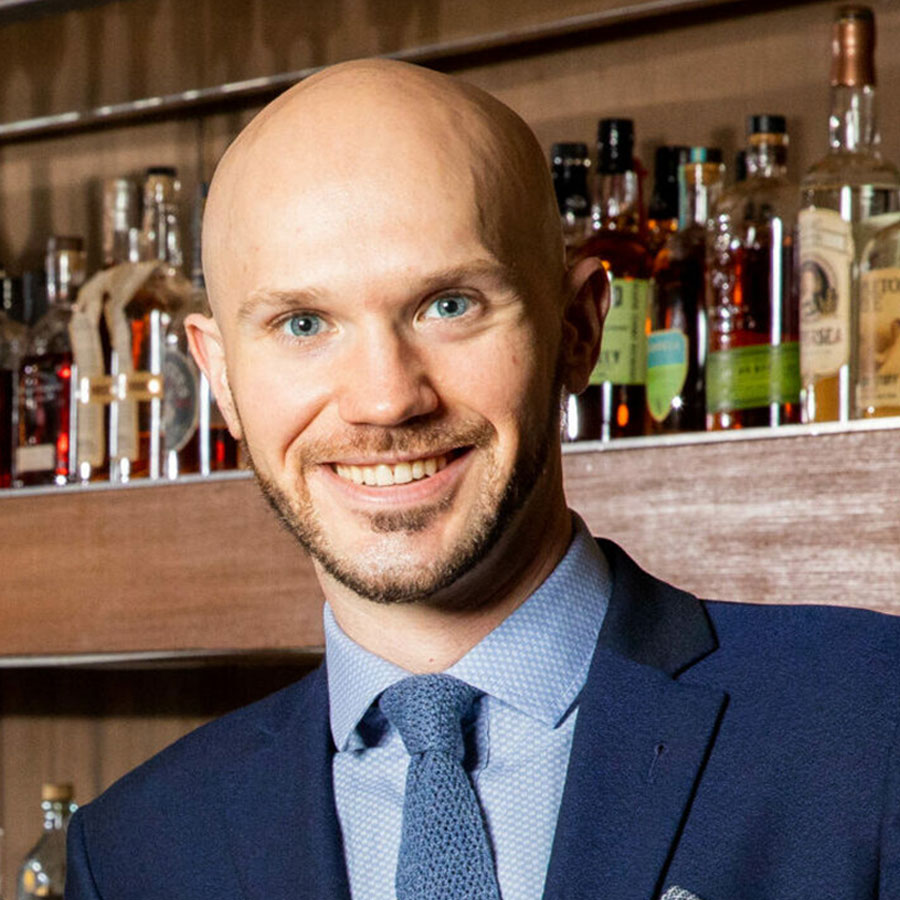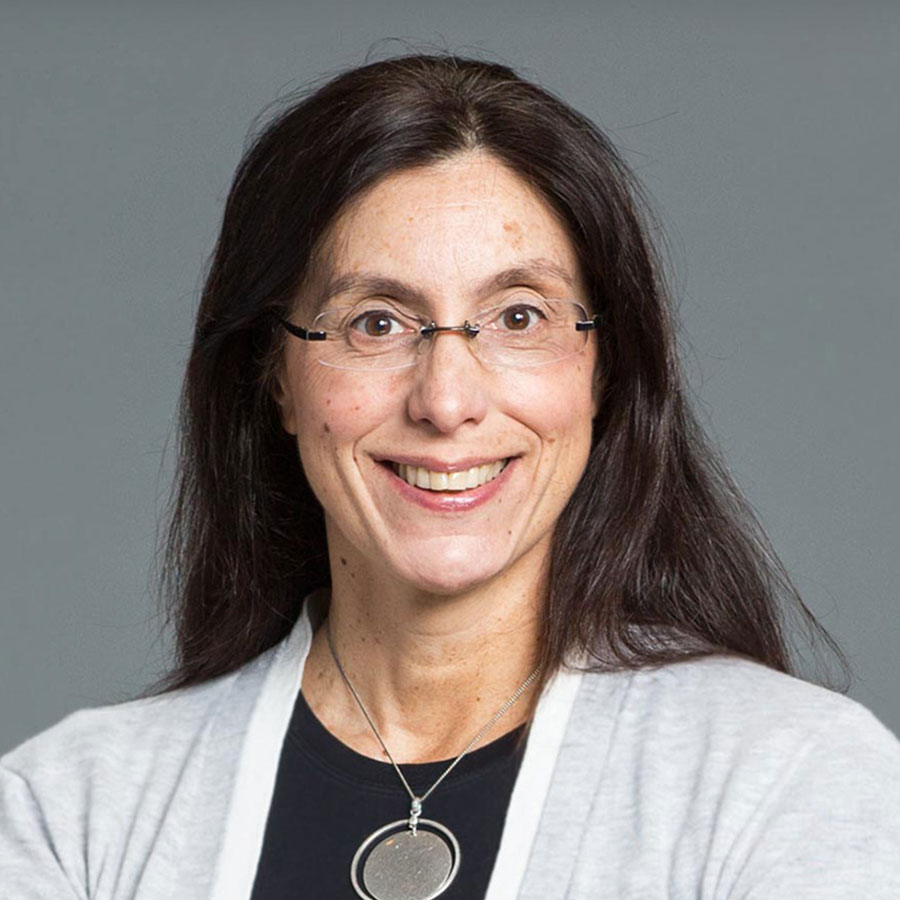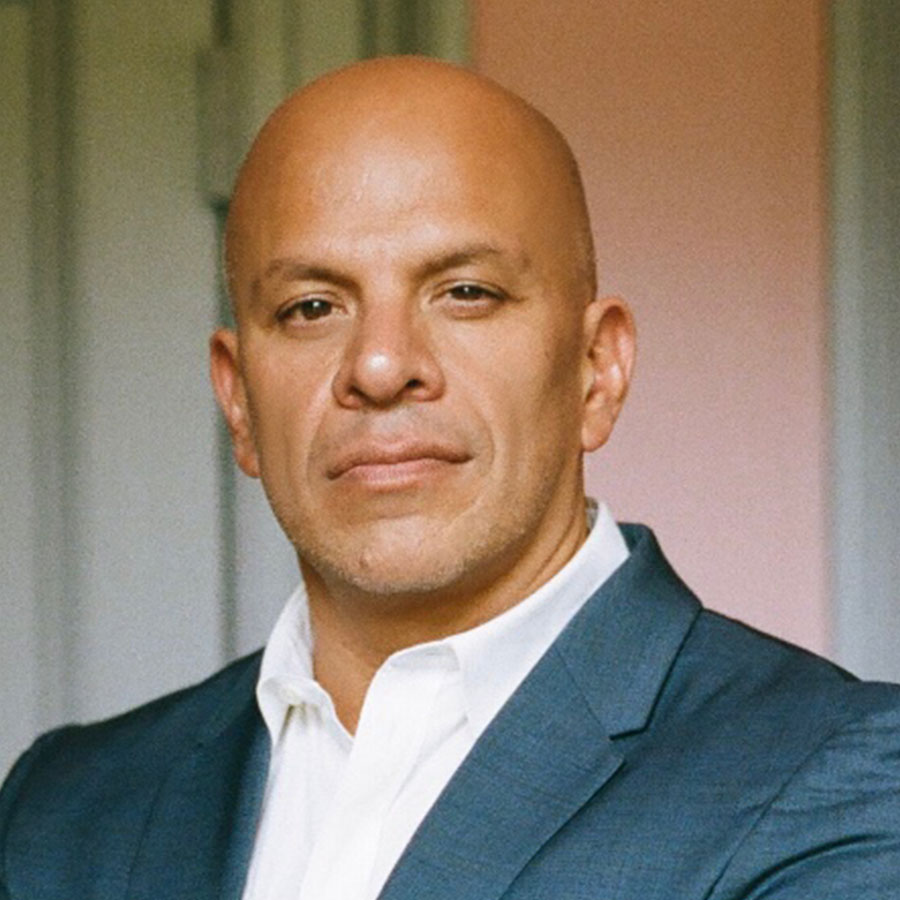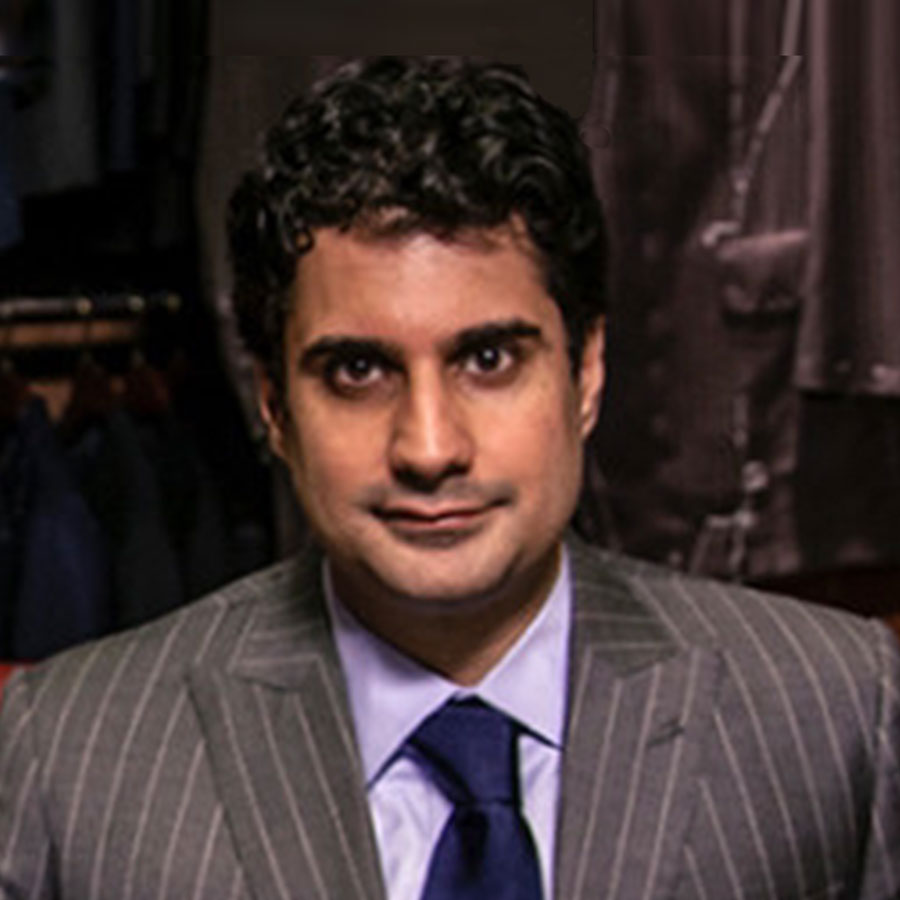Ken Davenport is a Tony Award-winning Broadway producer and writer whose credits include Kinky Boots (Tony Award), Once On This Island (Tony Award), Gettin’ the Band Back Together, The Play that Goes Wrong, Groundhog Day (Tony nomination), Deaf West Theatre’s Spring Awakening (Tony nomination), It’s Only a Play, Macbeth starring Alan Cumming, Godspell, and more, including multiple Off-Broadway productions such as the original works Altar Boyz and The Awesome 80s Prom. Ken’s shows have been produced internationally in over 25 countries.
He is the founder of TheaterMakersStudio.com, a one-of-a-kind “masterclass” training community, and the creator of the best-selling board game Be A Broadway Star. Ken was also the Executive Producer for North America for Andrew Lloyd Webber’s Really Useful Group, and is the Theatrical Consultant for Primary Wave, a music management and publishing company.
Upcoming projects include A Beautiful Noise: The Neil Diamond Musical, Broadway Vacation, Joy the Musical, Barry Manilow’s Harmony, and a musical based on the life of Harry Belafonte. He lives on the Upper West Side with his wife, their three-year-old daughter McKenna and their dog, Koda (short for “Kodachrome,” from the Paul Simon song).
1.
Paul & Vince: So, Ken, how did you end up in New York City and in your current career?
Ken: Like most people in the theater, I started as an actor. That’s the gateway drug for most of us. And for me, it started when I was five years old, and my parents brought me to an audition for the first time. And I did it until I was about twelve and got too cool for it. I thought I would play for the Boston Redsox and the Boston Celtics simultaneously like I was some Wunderkind. [Laughs.]
I got re-bit by the bug my senior year of high school when I saw Les Misérables. I’m part of what I call the Les Mis generation. A whole bunch of us are in the business because they saw that musical. It made me realize that musicals could move people—and I decided that’s what I wanted to do. I was already going to Johns Hopkins University to become a lawyer, so I spent a year there and transferred to Tisch at NYU—again, to become an actor.
I did one of those classic production assistant gigs—a gopher, intern, whatever you wanna call it—working for subway tokens and lunch. [Laughs.] I’d never worked harder, learned more, or loved anything more. I started on the production of My Fair Lady in 1993, Grease with Rosie O’Donnell, and a slew of others. And then, I found my way into the administrative side of Broadway shows. General managing, company managing, stage managing—and then started developing and producing my own shows in 2004.
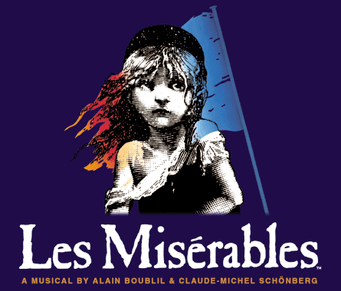
Paul & Vince: So you’ve been on the production side of things for quite awhile!
Ken: Yes! Getting close to thirty years. And with this hair, you can really believe it. [Laughs.]
So, in 2004, I had worked on these giant Broadway shows and wanted to produce my own—but frankly, I didn’t know anyone who could write million-dollar checks. I couldn’t even write a check for my MasterCard bill when I was starting out, never mind anything more than that. And I wanted to run the shows myself. I felt it was very important to have my own business, not just be a part of someone else’s. That’s where I would learn the most.
And I’m a creative person, so I was coming up with ideas for my own shows. And they were off-Broadway ideas. I had some ideas for small audiences and just put them up—and they worked.
Paul & Vince: For non-theater people reading this—could you explain the difference between off-Broadway and Broadway?
Ken: Well, the technical definition is that a Broadway show is 500 seats or more in a very specific geographic location. So, a Brooklyn theater that has, like, 1200 seats doesn’t qualify. There’s a big movement to change some of this, and I believe it should be changed. And then off-Broadway is 100 seats to 499 seats, and that geographic definition isn’t as strict.
But some connotation comes with the word “off-Broadway,” which is a little more avant-garde and unique—I like to use that word often. Stomp!, Blue Man Group, De La Guarda, Vagina Monologues…these are the real off-Broadway shows that people know, and the tendency with all of these is they’re very different.
And in the beginning, I had off-Broadway ideas. Like, The Awesome 80s Prom, I knew, was not destined for the Palace Theater. Altar Boyz, my second show, was not destined for the Broadway Theater. It’s like having a product and knowing, “Oh, I need a Madison Avenue boutique; I don’t need Wal-Mart,” right, “or Nordstrom.” You have to know where the product is going to sell the best. And my first few shows were more off-Broadway shows than Broadway shows.
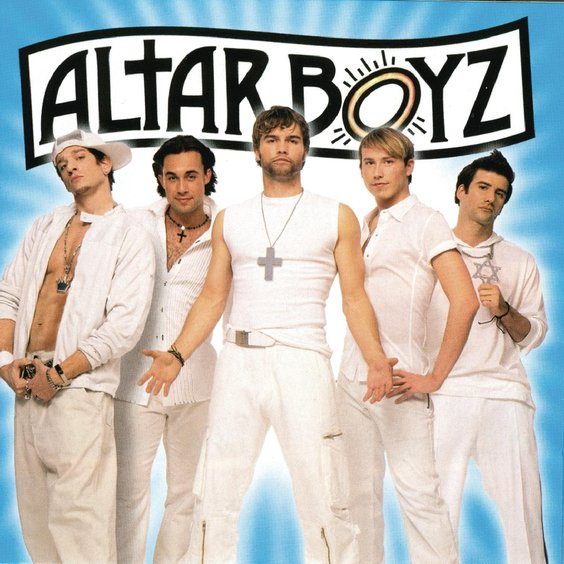
Paul & Vince: So now that you’re producing on Broadway, do you still consider off-Broadway as an option?
Ken: For sure! I focus more on the Broadway shows now, but if I have ideas for things that are off-Broadway-related, that’s where they’ll go. We also use off-Broadway as a springboard to Broadway, the same way Hamilton bounced to Broadway from off-Broadway, Fun Home, or Dear Evan Hansen. Or even A Chorus Line, if you go way back!
Paul & Vince: How does your off-Broadway experience set you apart now that you’re on Broadway?
Ken: Great question! I’ve been on the staff of Broadway shows that were $10 million, $12 million dollars, where you have a hundred different people on the staff. Infrastructure for days.
Off-Broadway, for The Awesome 80s Prom, I wrote it, directed it, ran the box office, the group sales line, the marketing—everything. It’s like a start-up! You have to figure it out with very little budget. And that is an unbelievable education.
What I try to do now, when I have those big Broadway shows that are $15 million, $20 million, is to take some of that off-Broadway producing philosophy that I learned and apply it. Like, “Okay, so we’ve got a hundred people. But that doesn’t mean we should use them all or spend the money on this thing—we should try to find a more creative, inexpensive way to solve the same problem.”
2.
Paul & Vince: What does a typical day on the job look like for you?
Ken: Basically, I’m a business owner. I run a business. And I’m a serial start-up guy. I come up with a product. I have to raise the money for that product. I have to find out where I’m going to sell that product. My product is a play or a musical, and I have to find a team to sell, create, and design it—all those things.
If anyone reading this owns their own business, they know what it’s like. It’s the same thing. It’s coming up with a new marketing promotion. It’s managing staff. Right? It’s doing all the things. It just so happens that what I sell is theater. And I don’t open a store and keep it open for twenty years unless you’re Phantom of the Opera. [Laughs!]
I may open a new store with a new product or business every year. That’s what makes it fun. So my job is different daily—but it always starts at 5 AM.
Paul & Vince: Wow, that’s early! And when does it stop?
Ken: Ah—it stops when I fall asleep on the couch, or in my bathtub, at like 10 PM, and with my wife walking away, like, shaking her head and rolling her eyes, like “Again?” [Laughs.]
But it differs because I like to put my three-year-old to bed and hang out with my wife a bit—but I have to go to the theater a lot. I have to entertain—whether it’s artists or investors—a lot. And I’m a Tony voter, so I have to see every new show that comes out.
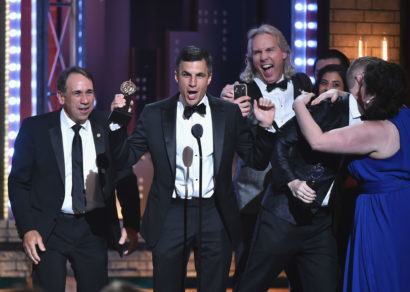
Paul & Vince: So you can’t just tune in when you feel like—you have to be responsible for the state of Broadway?
Ken: Yeah. If I want to vote in the categories, I must see every show. And it’s not just the state of Broadway. It’s theatrical history! When a show wins a Tony award, it’s seen worldwide. And art changes lives, hearts, and minds, and it’s a big responsibility that I take seriously.
Gathering together to hear stories dates back to the beginning of humans. It’s not going away. It’s survived the invention of the radio, the invention of the television, and the invention of the internet. And the pandemic has only thrown gas on that fire because there’s pent-up demand. I am drooling to get back into the theater! I’ve missed it so much! There’s nothing like it to have a collective laugh, to stand and cheer with two thousand other people.
3.
Paul & Vince: Could you tell us a few things that most people don’t realize about your job?
Ken: Well, one of the myths is that we’re all these super fancy, ultra-mega-rich Upper-East-Side or big-time Hollywood types—and that’s just not us. Not only the producers but the people who invest in the theater? They are everyday people! They are lawyers, accountants, and real estate people! These are the people that fuel Broadway! It’s not some, you know, top hat-wearing, going-to-Sardi’s-five-days-a-week group! It never has been.
Another thing that people don’t realize: we often hear, “Theater tickets are so expensive…”
So are Yankees tickets. And so are concert tickets. People must remember that when you go see a Broadway show, you’re watching the theatrical equivalent of the New York Yankees onstage. They are the absolute best in the world at what they do—so yeah, it costs a lot for those people to show up eight times a week.
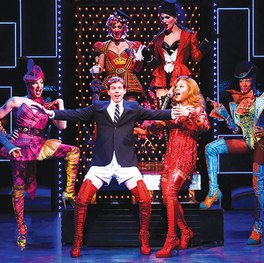
That said, those people make errors the same way the Yankees infielders make errors. And sometimes I feel like that’s why people come to the theater because it’s live! It’s like the arts equivalent of NASCAR. Everyone I know can tell a story about when things didn’t go right. It’s horrible at the moment, but it’s a big laugh afterward.
Paul & Vince: Right—it’s like watching a trapeze artist. We want to see someone succeed at something scary.
Ken: Yeah! Like, are they gonna make it? And great composers can write that into music, so you can hear what’s coming. “Oh my gosh, the big note is coming. The big note is coming! Are they gonna get it?!”
Paul & Vince: So, what shows do you have coming up right now?
Ken: The big two right now are Harmony and A Beautiful Noise.
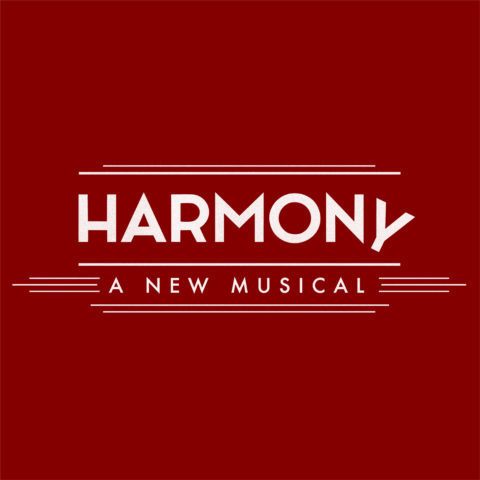
Harmony is a very interesting one. It’s Barry Manilow’s musical debut here in New York City. An original score by Barry Manilow and Bruce Sussman, it’s about the Comedian Harmonists—a sort of boy band with several Jewish members that became internationally popular just as the Nazis were coming to power. A very unfortunate time in our history but a very important time to learn from.
And, I mean, the Neil Diamond musical…it’s Neil Diamond! That’s all you have to say. [Laughs.]
4.
Paul & Vince: What are some of your favorite things to do in the city on your day off?
Ken: Well, I like taking my kid to the playground.
Paul & Vince: Okay. And what else?
Ken: Really—that’s it!
Paul & Vince: [Laughs.] You must be tired after seeing every single theater production in Manhattan…
Ken: I mean, yeah. Look, I have to see a lot of shows. I’m lucky that my hobby is also my profession!
Paul & Vince: Right. So—do you have a special playground you go to?
Ken: We live on the Upper West Side, so we’ll go to various parks—whatever she’s named them. The camel park, the tube-slide park, the train park…
My only other hobby is I play golf. There’s a place called Five-Iron Golf on 31st and Sixth where I hit balls every morning. It’s my version of the gym. It’s entirely indoors, with lots of simulators—very high-tech. And I’m a pretty extreme golfer, so it’s great.

Paul & Vince: When did you get into golf?
Ken: When I turned forty. I couldn’t play basketball anymore because my knees wouldn’t make it, and then my wife got me into golf, and I got obsessed with it. And it’s a great way of meeting potential investors.
Paul & Vince: Right, right! And do you golf outside as well?
Ken: Yeah, just not in February. [Laughs.]
Paul & Vince: Do you think there’ll be a musical about golf someday?
Ken: There has been an off-Broadway musical about golf. But do I think it’ll be Broadway? No. In general, sports musicals are difficult to pull off. You don’t know of many. And, frankly, movies do them better—so why not let them? That’s why I’m working on a golf movie.
I optioned the rights to this guy’s life story. It’s called The Dan Plan. A guy who turned 30 and had never picked up a golf club in his life said, “I’m gonna devote the next ten thousand hours to becoming a professional golfer.” Based on Malcolm Gladwell’s ten-thousand-hour rule, you know.
Paul & Vince: Wow!
Ken: Yeah! It’s a great story. I won’t tell you how it ends…
…and one more, Just For Fun
Paul & Vince: Okay, Ken, now it’s time for your Just For Fun question: If you could bring back any fashion trend from any time or place in history, what would it be and why?
Ken: I grew up in the eighties, so everything about the eighties was great. I loved those jam shorts we used to wear. Those were great! It was so over the top and fun and ridiculous. That’s why I love it.
And let’s see, what else? The Don Johnson look was fun…
Paul & Vince: Oh, yeah! And you did a whole show on this, did you not? What’s your eighties prom outfit?
Ken: Well, mine was a very blue blazer, khakis—very prep-school kid, very boring. I didn’t have any fashion sense.
Paul & Vince: How would you have dressed if you could go back knowing what you know now?
Ken: Hmm…Back in those days, I was very brand-focused, very logo-focused. So I think if I could go back, I wouldn’t worry about that stuff. The right, y’know, polo horse on your shirt didn’t mean anything. I’d get away from that and be like some other kids I went to school with who just didn’t care.
Paul & Vince: Were you ever part of that double-layers trend? Wearing two Izod shirts at the same time?
Ken: Not that one, but I remember no socks! We just never wore socks, which was the grossest thing around. But we never wore them! Including in Massachusetts winters, the no socks.
Paul & Vince: Would you want to bring that back?
Ken: You know, that one can stay in the eighties. [Laughs.]
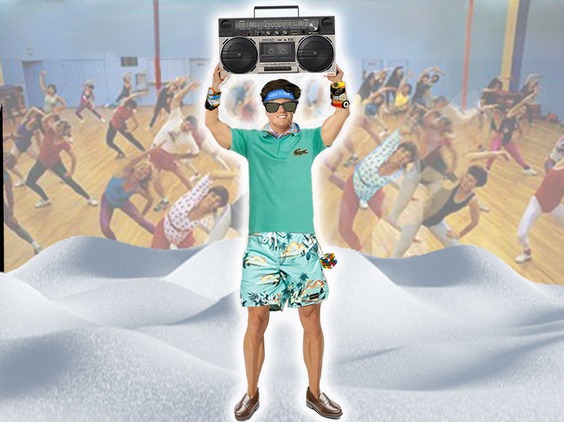
Original artwork by Jolisa Robinson, Gavriani-Falcone Team Marketing

